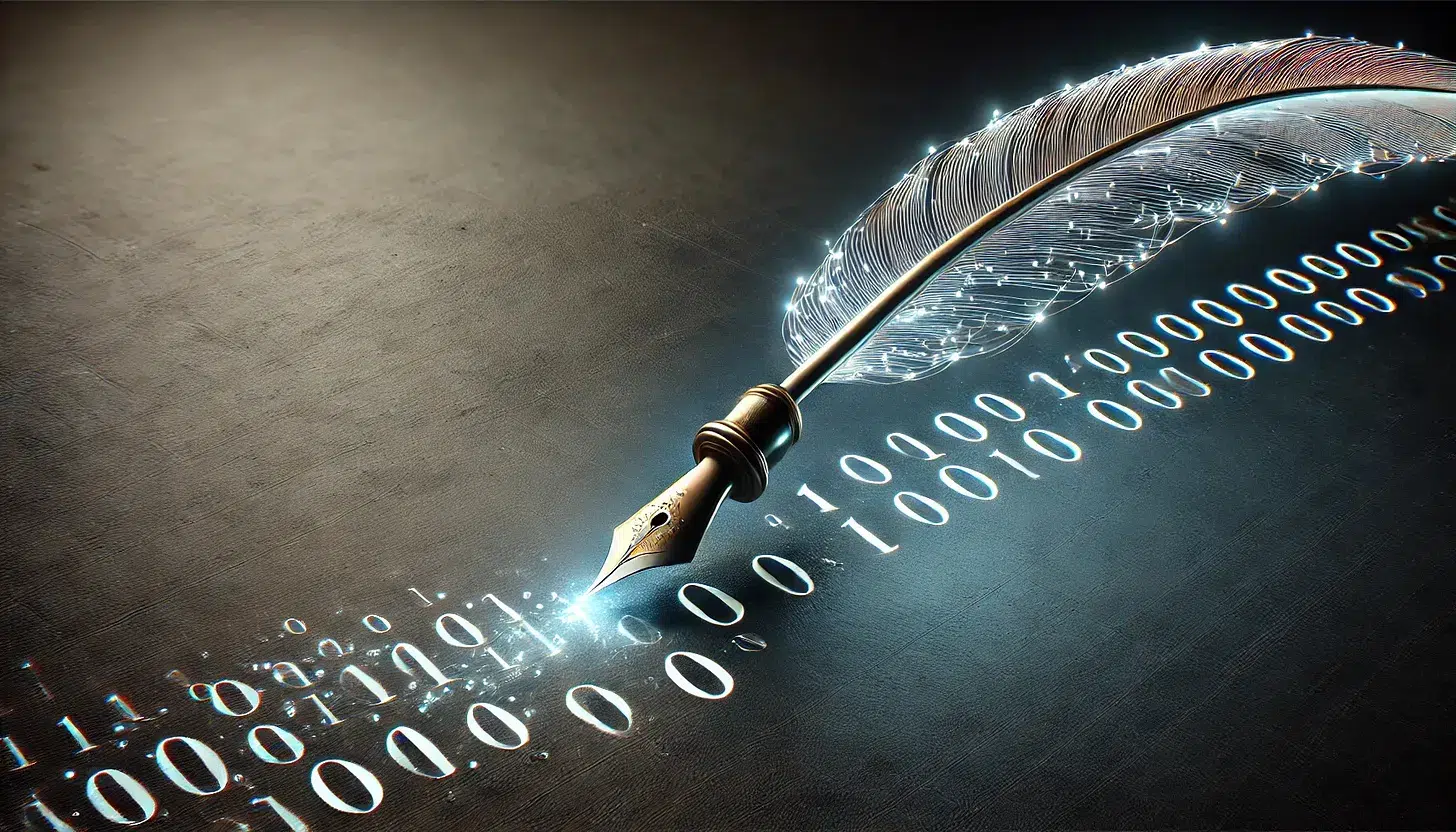In an era in which so much discourse happens in the digital arena, new protections of individual rights are needed
When the Bill of Rights was ratified in 1791, it was more than just a legal document—it was a manifesto for a new kind of freedom. The Founding Fathers, acutely aware of the dangers of centralized power, sought to carve out protections for the individual against government overreach. It was a bold idea in an era when monarchs ruled with near-absolute authority and citizens were often at the mercy of their whims. The Bill of Rights guaranteed that Americans could speak their minds, practice their religion and live without fear of the government prying into their lives—a revolutionary set of promises for its time.
But times change. The enemies of liberty no longer wear crowns or sit on gilded thrones. They reside in ivory towers in Silicon Valley, overseeing algorithms that wield unprecedented power. In today’s world, the fight for freedom is no longer confined to courts or congresses; instead, it plays out on the screens we carry in our pockets. Companies like Google, Meta and X are the gatekeepers of modern communication, and their power is staggering. They decide which voices are amplified, which are suppressed and, perhaps most alarmingly, which are erased altogether.
In this era of new realities, new protections of individual rights are needed. This is why we need a Cyber Bill of Rights, a modern blueprint for liberty, ensuring that the freedoms envisioned in 1791 extend into the digital age.
The Price of Dissent
Joe Rogan’s podcast episode featuring Donald Trump amassed tens of millions of YouTube views, reaching an audience that dwarfs anything seen on prime-time television. As Rogan recently told fellow podcaster Tim Dillon, despite its staggering reach, the episode was conspicuously absent from YouTube’s trending list—a potent reminder of Big Tech’s role in curating public perception. These platforms aren’t neutral; they are arbiters of what’s acceptable in the digital narrative, subtly steering public discourse in unseen ways.
The consequences of this imbalance are profound. When the Founding Fathers imagined free speech, they pictured town squares and pamphleteers, a society in which voices, no matter how unpopular, could be heard. Today’s town square is digital, but its architecture is controlled by private companies whose priorities clearly clash with the principles of free expression. Algorithms, which should be impartial tools, are instead weaponized to favor certain viewpoints and suppress others. Voices critical of prevailing narratives—especially those deemed “right-leaning” or “controversial”—find themselves demonetized, deplatformed or buried beneath a mountain of algorithmic obscurity.
This is not a hypothetical concern; it’s a lived reality for countless creators, journalists and ordinary users. Whether it’s the silencing of a controversial podcaster, the demonetization of independent media or the outright banning of accounts that stray too far from Silicon Valley’s ideological preferences, the message is clear: Dissent comes at a price.
A Cyber Wish List
At its core, a Cyber Bill of Rights should demand unprecedented transparency from the tech giants that dominate our digital landscape. In today’s world, the algorithms that govern platforms like Google, Meta and X operate as opaque black boxes. They quietly dictate whose voices rise to prominence and whose are silenced, often without users having any understanding of how or why these decisions are made. This lack of transparency is not a mere oversight; it is a deliberate choice by companies that profit from controlling the flow of information.
To rectify this, a Cyber Bill of Rights should mandate that these platforms disclose how their algorithms function. Users deserve to know the mechanics behind why certain posts trend while others are buried, or why some creators’ content appears frequently while others see their reach inexplicably throttled. Transparency would mean public access to the criteria used for content ranking, visibility and moderation. Moreover, platforms should need to explain their decisions in plain language, eliminating the baffling jargon that currently shields them from scrutiny. Transparency isn’t just about revealing these processes; it’s about accountability. When platforms operate in the shadows, they are free to apply their rules inconsistently, favoring certain political ideologies or economic interests while suppressing dissenting voices. A commitment to openness would serve as a safeguard against such abuses of power.
Beyond transparency, the Cyber Bill of Rights should enshrine robust protections for free speech. The current system of deplatforming and demonetization often occurs without clear explanation or recourse. Creators or journalists can wake up to find their accounts banned or their revenue streams cut off, with only a vague reference to “violating community guidelines” as justification. This lack of due process is antithetical to the principles of free expression. A Cyber Bill of Rights should establish a fair and transparent system for content moderation and appeals, ensuring that no one is silenced or penalized without a clear and detailed explanation of the violation, along with an opportunity to challenge the decision. Such a framework would serve as a check on the arbitrary exercise of power, fostering an environment where diverse viewpoints can thrive.
Equally vital is the issue of personal data. For years, tech companies have treated user data as a gold mine, harvesting it without explicit consent and weaponizing it for profit or political influence. Every click, like and search query is meticulously tracked, analyzed and monetized, often in ways that users do not fully comprehend. This commodification of personal information has turned individuals into products, their lives dissected and sold to the highest bidder.
A true digital charter should reclaim control of personal data for the people. Users should be granted ownership over their information, with the right to decide how it is collected, stored and used. Platforms should be required to obtain explicit, informed consent before gathering data, and individuals should be able to opt out of data collection entirely without losing access to the platform. Moreover, this charter should enforce strict limitations on how data can be shared or sold, ensuring it cannot be exploited for political manipulation, targeted advertising or other unethical purposes. Data ownership is not merely a matter of privacy; it is a matter of power. By reclaiming this power, individuals can protect themselves from the pervasive surveillance capitalism that defines the modern internet.
Critics may argue that such regulations would be an overreach, pointing out that tech companies are private entities, not governments, and thus should not be held to the same standards. But this perspective ignores the sheer scale and influence of these corporations. When a handful of companies control the majority of online discourse, their role begins to resemble that of a government: They set the rules, enforce them and wield the power to shape society’s understanding of truth and reality.
High Stakes
The stakes could not be higher. The internet has revolutionized how we communicate, learn and connect, but it has also created a host of dangers. When a single tweet can make or break a career, when an algorithm can determine the success or failure of a business and when a social media ban can erase someone’s voice from the public square, the need for protection becomes undeniable.
In the end, the fight for freedom is never truly over; it merely evolves. The muskets and printing presses of 1791 have given way to smartphones and servers, but the principle remains the same: Power must be checked, and liberty must be defended. A Cyber Bill of Rights is not just a policy proposal; it’s a necessary step to ensure that the freedoms envisioned by the Founding Fathers endure in the digital age.
This, I hope, is a New Year’s resolution that everyday Americans—and, more importantly, the new Trump administration—can rally behind.
If you enjoyed this piece, please consider giving to Discourse. Your contribution will help us to continue offering all readers, free of charge, the thoughtful and diverse content that you’ve come to love.




